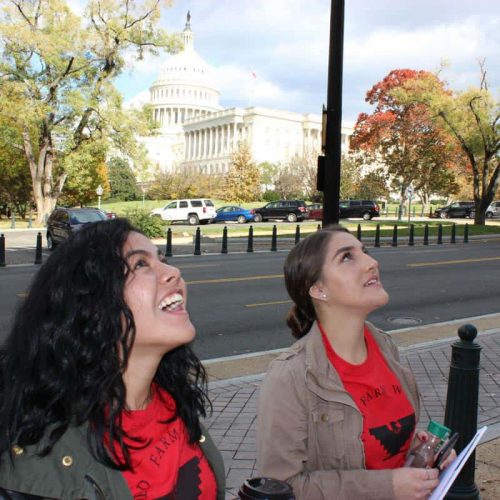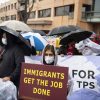Introduction
President Joe Biden sent Vice President Kamala Harris to Central America this week with a mission: Begin a new era of U.S.-supported programs to try to decrease migration by reducing poverty, violence and corruption in the infamously unstable region.
It’s no small task. Local oligarchs and U.S. companies have long reaped profits from countries with stark inequality. Corruption and climate change are uprooting people. Gangs formed in the wake of 1980s civil wars prey on teens, who hit the migrant trail to join relatives in the United States, as the Center for Public Integrity has reported.
But the Biden administration also faces a daunting immigration challenge right at home.
The president wants Congress to consider his comprehensive proposal to put millions of undocumented people, many here for decades, on a path to legal status. With a slim Democratic majority, it could be impossible to get to the traditional 60-vote Senate threshold for a sweeping legalization.
Since the early 2000s, GOP lawmakers such as Sen. Marco Rubio, R-Fla., have seesawed between supporting legalization and thwarting its passage. Donald Trump rode anti-immigrant rhetoric to the presidency for one term, and the GOP still lives in his shadow.
However, as Ernesto Castañeda-Tinoco, an American University sociologist in Washington, D.C., points out, even if politicians have changed stances, polling over the years has consistently shown strong support for legalization with conditions. A new NPR/Ipsos poll found especially strong support for legalizing farmworkers and people who’ve fled disasters or been here since childhood. The U.S. Chamber of Commerce and U.S. labor unions — not exactly close friends — have also been united for many years in supporting broad legalization.

Reform proponents, Castañeda said, would do well to divert media attention to enduring grassroots and business support for legalization. He pointed to business support for hiring immigrant workers in communities such as Hall County, Georgia, a poultry-producing county that Public Integrity investigated last year.
“As a practical issue, with so many people without documentation in the shadows, it makes governing harder,” Castañeda said. Legalization would boost tax coffers, improve public health and lift more families into the middle class, he said.
The fact that so many immigrants have filled essential jobs during the pandemic, Castañeda said, also helps frame legalization as “an ethical imperative.”
In May, lawmakers in the House and Senate introduced the Citizenship for Essential Workers Act, a legalization proposal aimed at certain workers lawmakers identify as essential.
Democrats are also weighing whether to bypass the 60-vote Senate threshold by folding a reform measure into a reconciliation process that’s used to pass tax and spending legislation by majority vote. They’re also considering whether they should focus on passing bills to legalize undocumented subgroups rather than a broader population.
The bipartisan Farm Workforce Modernization Act, for example, is the latest version of proposals to legalize farmworkers that date back to 2003. The House passed the bill in December 2019 with the support of 30 Republicans.
In March, the House also passed the Dream and Promise Act of 2021 with nine GOP votes. The legislation would put undocumented “Dreamers” here since childhood on a path toward legal permanent status. The bill would also apply to more than 400,000 people with Temporary Protected Status, most of them Hondurans and Salvadorans who’ve lived here for more than 20 years.
Susan Ferriss is a senior reporter at the Center for Public Integrity. She can be reached at sferriss@publicintegrity.org . Follow her on Twitter @susanferriss.
Read more in Inside Public Integrity
Coronavirus and Inequality
‘Historic wave of evictions’ expected when moratorium expires
The federal ban on evictions amid COVID-19 has been extended multiple times. It may be about to enter its final month.
Coronavirus and Inequality
States move to ban ‘vaccine passports’
The measures come amid a wider Republican-led push to curtail public health authorities’ powers.




Join the conversation
Show Comments